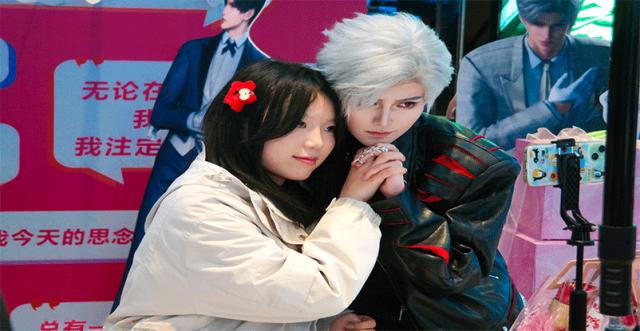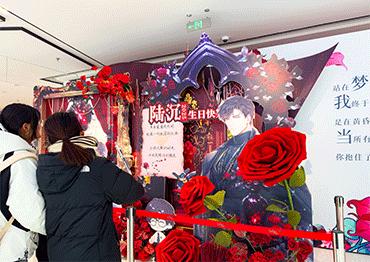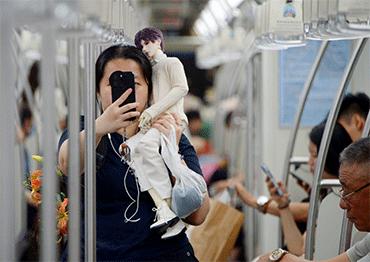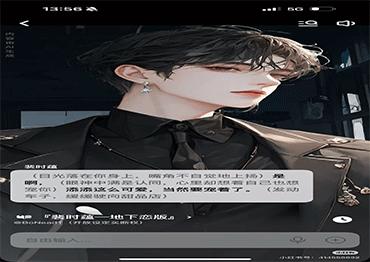First emerging in Japan, otome games are romance video games designed primarily for heterosexual women. Even the word otome means “unmarried woman” or “maiden.” Players take on the role of a female lead who explores different love interests with male characters to drive the plot forward.
Since the release of Mr. Love: Queen’s Choice, China’s first domestically produced otome game in 2017, the genre has surged in popularity. According to market analysts iResearch, China’s otome game market exceeded 21.7 billion yuan (US$3b) in 2021. Some 82 percent of players are between the ages of 18 and 30, and 35 percent spend more than 500 yuan (US$70) per month on these games.
One of the most popular titles is Light and Night, launched in 2021 by Aurora Studio and published by Tencent Games. The interactive romance game features five different male love interests. Each character has a distinct personality, profession and backstory, allowing for a richly personalized romantic experience.
Osborn, the game’s racing character, was Tian Qing’s first love in the virtual world. She began playing the game in college.
To her, he embodied the perfect boyfriend: an over six-foot-tall heartthrob with four racing titles under his belt, always dressed in tight black clothing and straddling a roaring motorcycle.
“He’s the kind of youthful, radiant guy many girls would fall for,” Tian said.
In the game, Osborn sings to her, dries her hair gently, cooks her meals, calls her by pet names and even kneels to kiss her hand.
At the time, Tian had a real boyfriend, now her husband, but still found herself immersed in virtual romance.
“People assume only the lonely or unhappy turn to virtual love, but I don’t see it that way,” she told NewsChina.
For her, romance games are a supplement to real life, a “dream” where young and handsome men prepare surprises, gifts and heartfelt greetings on holidays.
“You can’t meet that many ideal men in reality,” she said.
According to Tian, she and her husband live a “quiet, eventless and ordinary life.” They seldom celebrate their anniversary, so Tian never expects to be surprised with roses or chocolates.
She describes her husband as a “mild and tolerant person” who sees her romance gaming as pure entertainment rather than any form of emotional infidelity. He also enjoys video games, and the couple share a dedicated gaming room. Tian’s husband was unavailable for comment.
But not everyone can balance the virtual and the real. For some, digital romance is the only kind they can rely on.
Chen Zhiyu, a 23-year-old working at a law firm in Shenzhen, said she no longer believes in real-life romance. She had a brief college relationship that ended after six months. Now, burdened by long hours and work stress, she says she has neither the time nor the emotional energy for dating.
Instead, she has Rafayel, a character from the romance game Love and Deepspace. Rafayel is a 24-yearold artist with dark purple hair and blue eyes. Though introverted, he is surprisingly talkative to the game’s players, and incredibly affectionate.
“Love, at its core, is an emotional experience,” she said. “Even if it’s not real, the feelings in the game are similar.”
For Chen, the power of these games lies in control. She feels she can completely guide her relationship with Rafayel and, in doing so, learn more about herself. “You figure out what you want, who you like, what kind of partner you’re hoping for,” she said. “In the end, what you really gain is the ability to better love yourself.”
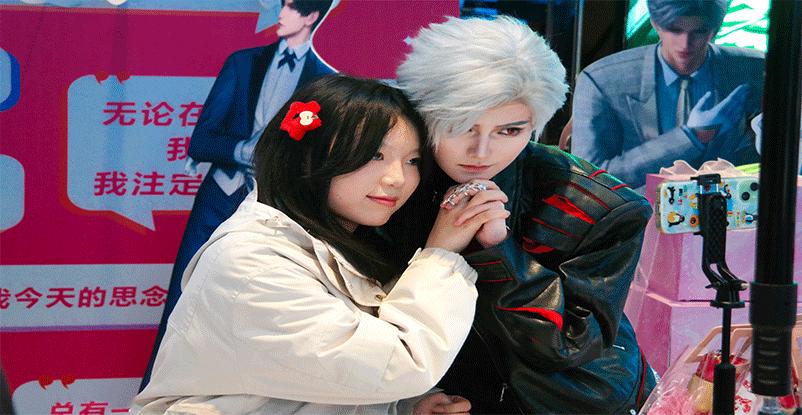
 Old Version
Old Version
